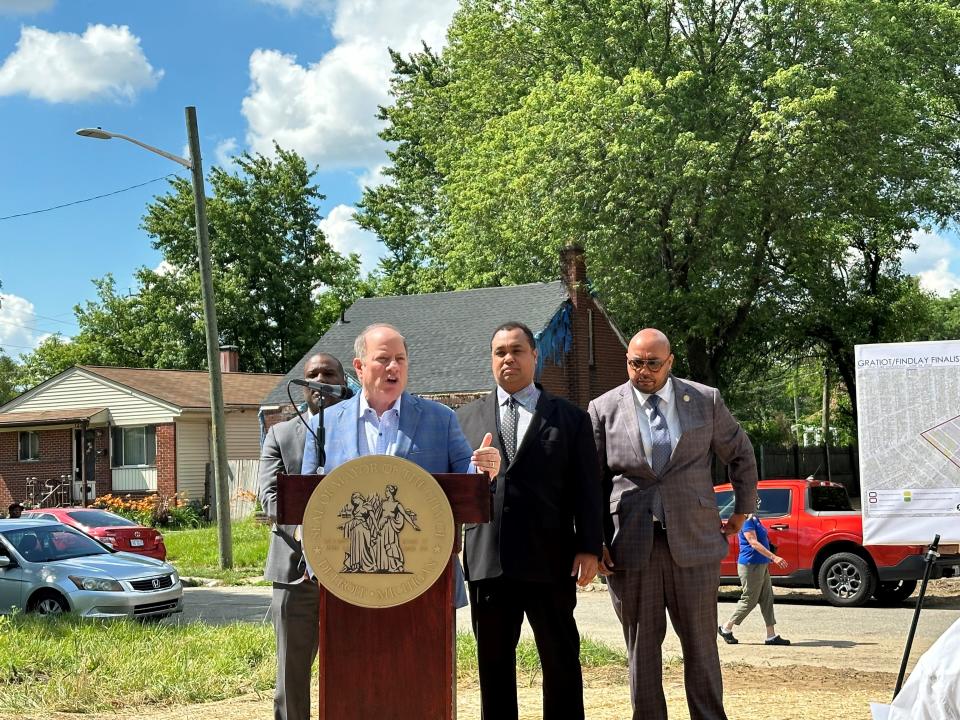Detroit City Council delays vote on solar neighborhoods as city awaits legal analysis
Detroit City Council delayed voting Tuesday on developing fields of solar panels as officials prepare a legal analysis of the project.
After weeks of deliberation, council members sought outside counsel to provide the analysis, questioning whether the city can use eminent domain to acquire the proposed land. Council President Mary Sheffield also issued a plethora of questions to the mayor's office surrounding the project.
Ever since Mayor Mike Duggan announced the initiative in a news conference last month with dozens of residents and city officials, including Councilmembers Coleman Young II and Fred Durhal III, council officials have sought answers about the proposed 200-acre solar panel project, but they plan to vote on a bundle of reports next week.
The purpose is to generate clean energy to offset electricity used by the city's 127 municipal buildings. The first phase of proposed fields would be in Gratiot-Findlay, Van Dyke-Lynch and the State Fair neighborhoods.

Councilmember Angela Whitfield-Calloway proposed individually voting on the three farms, as opposed to voting on the three locations at once. But officials have yet to agree on that process.
Councilmembers Durhal and Scott Benson objected to the measure to receive a legal analysis of the proposed project. Perkins Law Group is expected to provide the report within a week, according to David Whitaker, director of the legislative policy division.
Resident reaction on Detroit solar neighborhoods
City Council needs to approve the land acquisition, along with a solar equity fund, which requires about $4.4 million to pay for the project. The fund will use reserves from the utility conversion fund, which is legally required to be used on energy conversion.
Residents provided mixed reactions at Tuesday's City Council meeting.
Maesha Parker, who lives in the Gratiot-Findlay neighborhood told the nine-member body that solar panels will provide cleaner air and energy to the city, and provide a platform to educate neighborhood children on the proposed development.
"It is a beautiful thing to see this in our neighborhood because I thought nobody cared. But we'd keep it clean over here. The kids will be well-mannered and I will make sure they will be educated as well," Parker said.
Francisco Rios, a resident who called into the meeting, said solar is "the future" which "benefits everyone" and serves as an opportunity to educate future generations on clean energy.
Rios added that it contributes to a "cleaner lifestyle by cutting carbon emissions ... this can also help cut costs on the electric bill."
Others, who did not identify themselves by their names as they called in, expressed their objections. One resident said solar fields would not eliminate blight in the city.
"People will still begin to dump around these areas where there will be no residents to report," said one resident, who identified as being with Detroiters for Tax Justice. "Many residents of Detroit are asking this legislative body to exercise due diligence before dedicating millions of our resources to build solar farms."
Dana Afana is the Detroit city hall reporter for the Free Press. Contact: dafana@freepress.com. Follow her: @DanaAfana.
This article originally appeared on Detroit Free Press: Detroit City Council postpones solar neighborhoods vote

